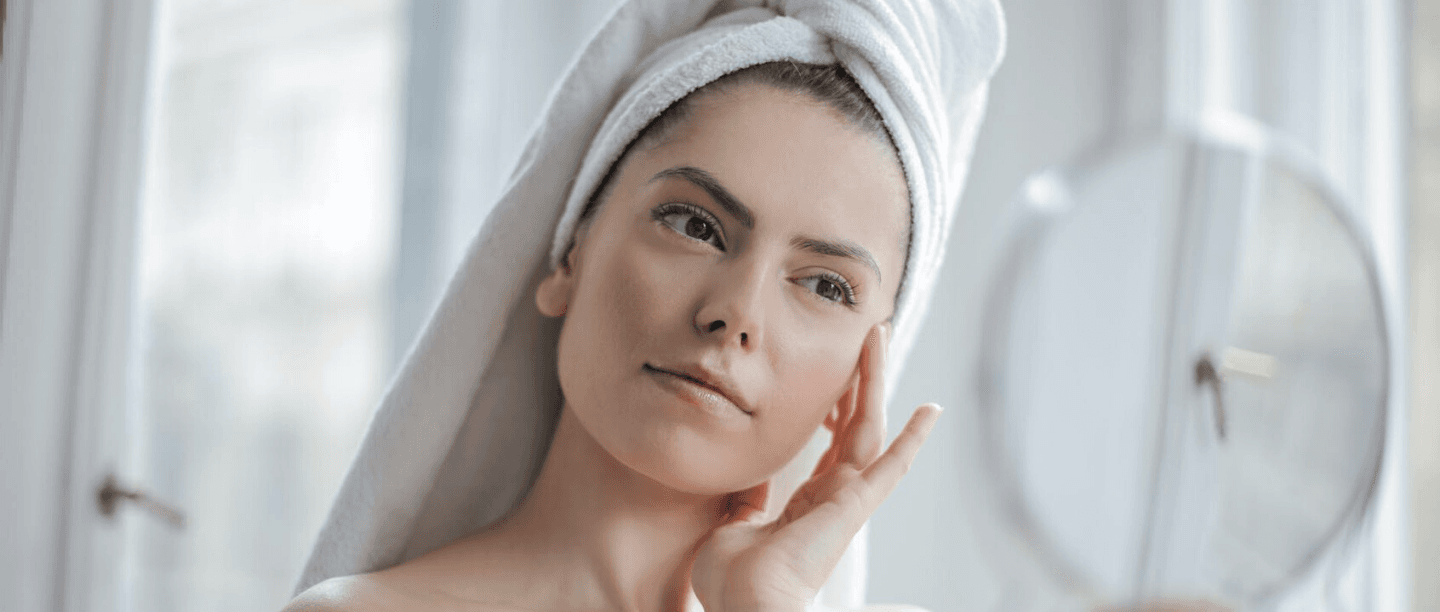If there was only one skincare ingredient you could pick to add to your routine, dermatologist’s would recommend you pick Vitamin A, aka Retinol. If you’re a skincare enthusiast, you have probably already heard of its legacy. But do you really know what it does? Retinol is a Vitamin A derivative, it’s considered to be the gold-standard in skincare. It does everything you would expect from 3 separate skincare products and then some more.
We got in touch with Dr Aneesh Sheth, the skincare expert, and entrepreneur behind Dr. Sheth’s, to give us his expert advice on this all-rounder ingredient.
The A-Z Of Retinol
“Retinol is a version of Vitamin A that has activities to help Indian skin. It gets converted to retinoic acid, which then binds to the retinoic acid receptor which results in increased skin turnover, more collagen, less melanin production and less acne. It’s considered the ‘gold standard’ of cosmetic dermatology – and even today, most treatments that come out are compared to retinol for their effectiveness on the skin,” says Dr Aneesh.
Retinol, like most of us, is a multitasker. It reduces the appearance of fine lines, increases your skin’s elasticity, evens out the skin tone, increases cell turnover but it also makes your skin appear more youthful. It also helps fight off cystic acne, reduces sebum production, increases the production of new skin cells, fades pigmentation, and refines your skin’s overall texture. Now as tempting as it may seem to jump on board the Retinol train, you need to take it slow. Depending on your product, your retinol can be mild or potent. It’s best if you consult your dermatologist before adding it to your skincare routine.
Experts recommend that you allow your skin to get acquainted with Retinol, much like you would with a new friend. Use it twice a week until your skin builds tolerance and resistance to it.
But it’s not for everyone.
Like one size may not fit all, neither does Retinol. Retinol can dry out your skin and make it irritable if not properly formulated, or if not supplemented with calming ingredients like hyaluronic acid and ceramides. The key here is to pick the right formulation and layer it with a hydrating moisturiser. It’s best to avoid it if you have super sensitive skin or if you suffer from psoriasis, rosacea, or eczema.
The Right Age To Use Retinol
So, when’s the right time to introduce it to our skincare routine? Experts agree that one should introduce retinol in their mid-twenties, especially if you suffer from pigmentation and acne. Do not use it for more than three months (and then give your skin a break for the next three months.)
The Connection To Indian Skin
What To Look For In A Retinol Product?
Retinoids, derived from Vitamin A, is the family that all types of retinol belong to. There are multiple types of retinol available in the market, the primary difference between each of them is their concentration. When it comes to buying Retinol, keep three major things in mind:
1) Its form & concentration: Will determine how potent it is and consequently, how much you need to use. For instance, you would only need a few drops of serum versus a dollop of moisturiser. The concentration will tell you the strength of the ingredient in the formula. If you’re a beginner, start slow. Opt for milder concentrations, anything between 0.1-0.2% strength is advised.
3) The aftercare: Experts recommend pairing your retinol serum or cream with a heavier moisturiser on top. This is especially effective if you have dry skin. It will minimise the risk of dryness and peeling otherwise associated with retinol.
Common Myths Around Retinol
To use it or not use it?! This controversial skincare ingredient has a lot of myths surrounding it. We got Dr Aneesh to shed some light on them all. Here’s what he had to say.
Myth 1) Don’t use Retinol around your eyes
This actually depends entirely on the formulation. If the formulation is gentle enough and has enough ceramides (hyaluronic acid along with a low concentration of retinol or a less irritating form of retinol), it should be fine. Always do a patch test before going all out.
Myth 2) Don’t wear Retinol during the day
Indian skin is particularly prone to pigmentation and tanning so we would recommend you do not use this during the day. Retinol makes the skin more sensitive to the sun. You could probably get by if you use weaker retinoids like retinyl palmitate with a strong sunscreen.
Myth 3) Retinol makes your skin thinner
This isn’t true. It actually stimulates collagen production and ends up making your skin turnover fast. It does, however, reduce the secretion of sebum which can dry the skin. So, it’s important to have ingredients like ceramides in your routine when using retinoids.
Myth 4) Retinol can make your skin peel
Yes, it can reduce the oil content, however, this is usually with higher strength retinoids. Start low and then gradually build up. Another way to introduce it to your regimen is to ‘buffer’ it – this means to apply a layer of moisturizer and on top of that dot a small amount of retinol.
Myth 5) Retinol cannot be used with other actives
This is true in some cases. Using Retinol or Retinoids at the same time as AHAs or BHAs may end up irritating the skin. It’s best to alternate them with each other on different nights.
Now that you’re all caught up with the benefits of Retinol, are you ready to take your skincare game to the next level?
Featured Image: Pexels.com





